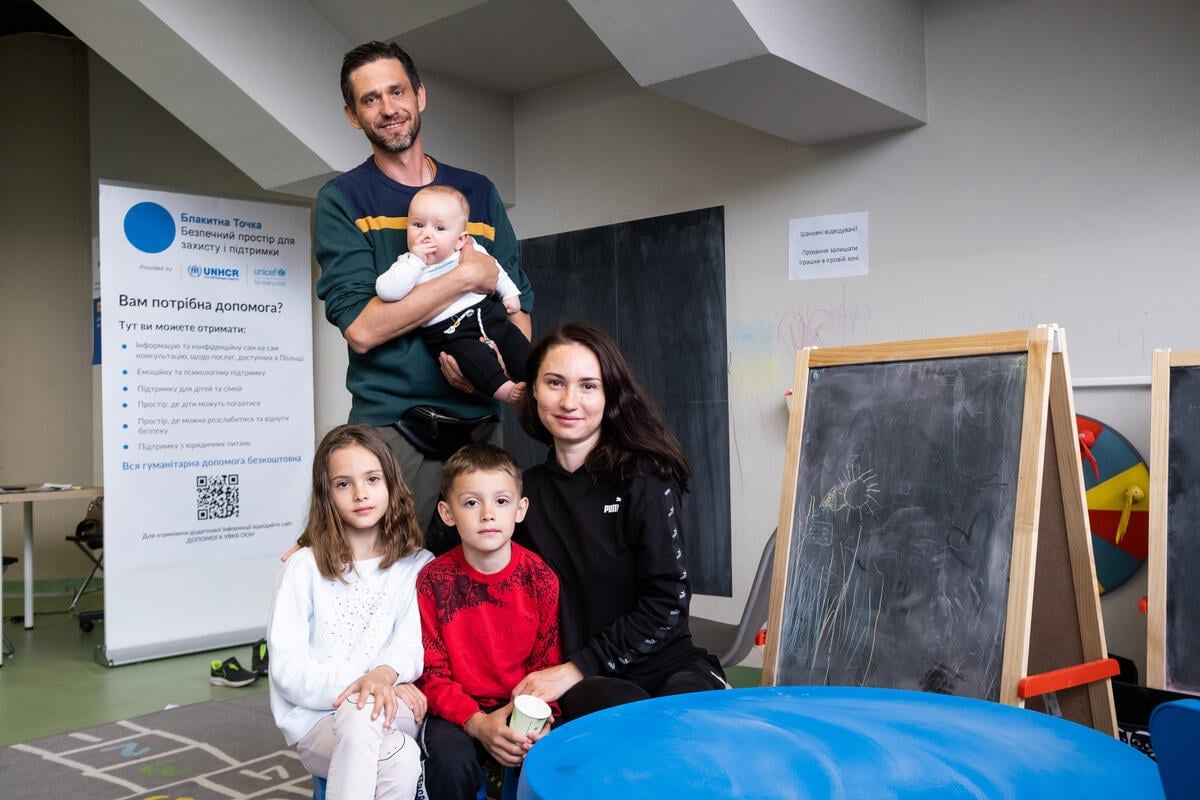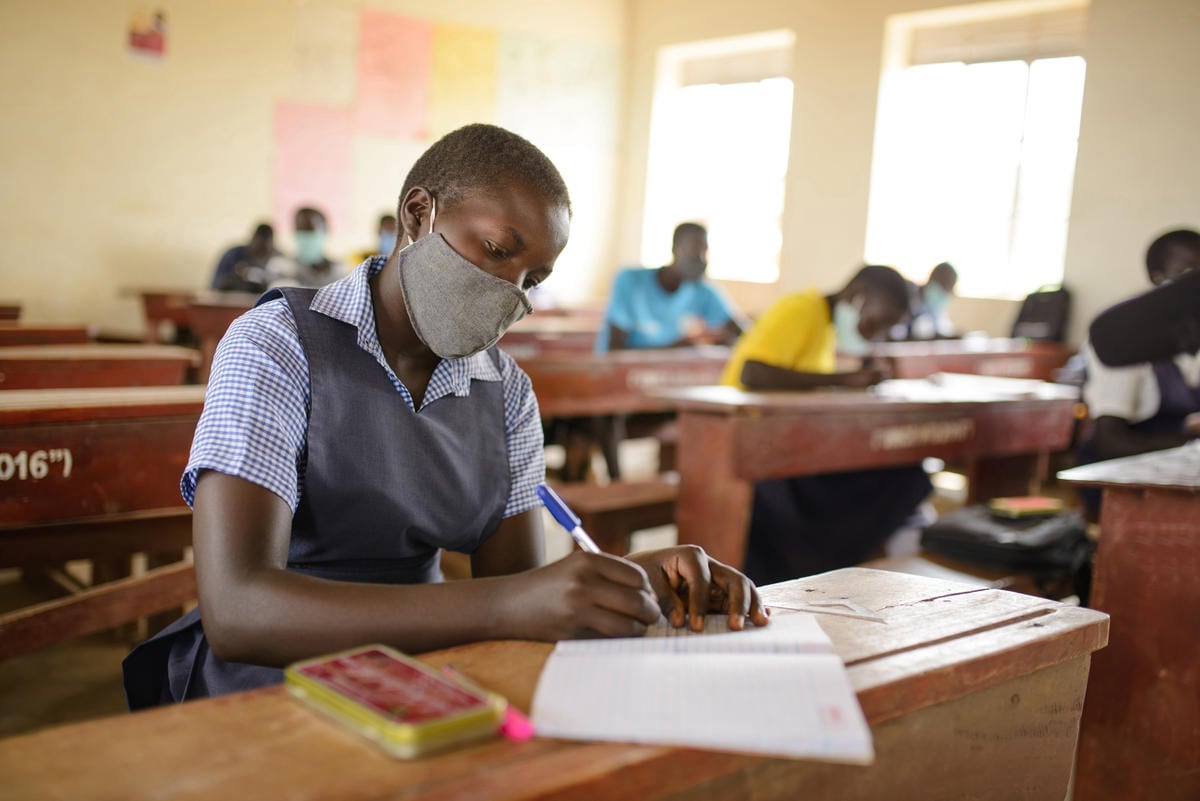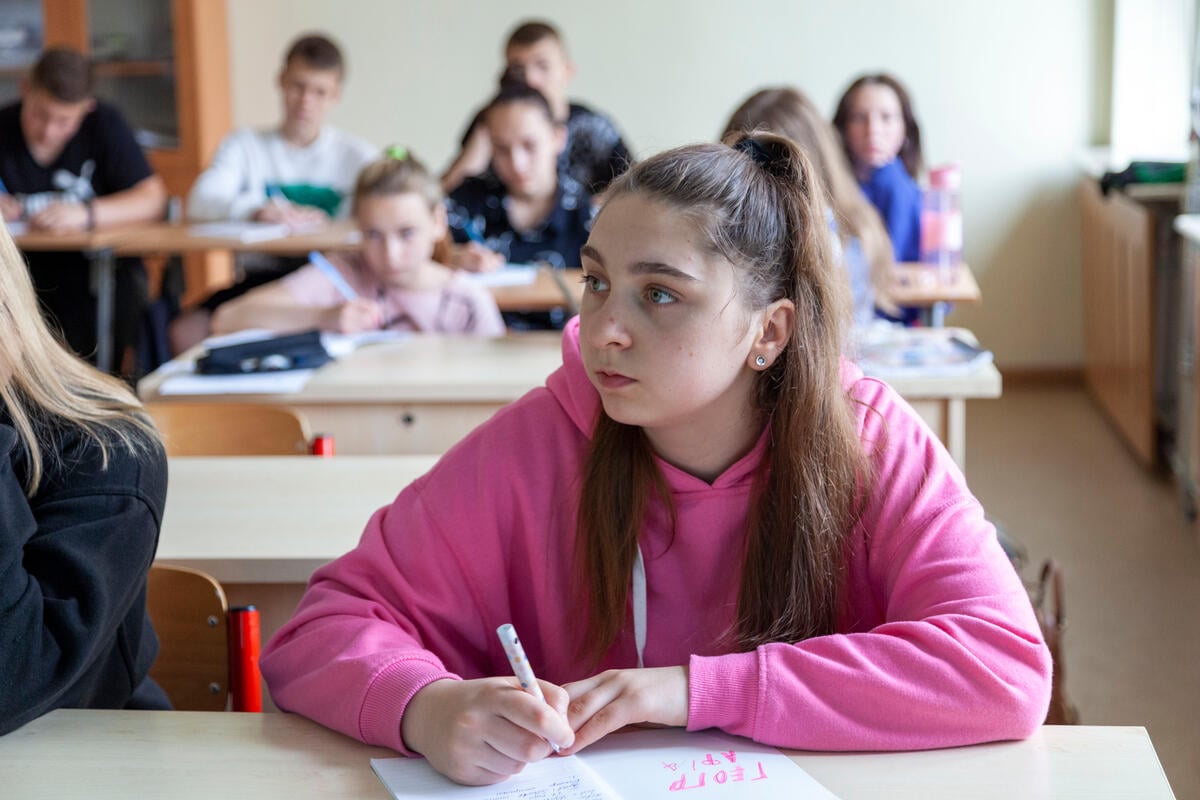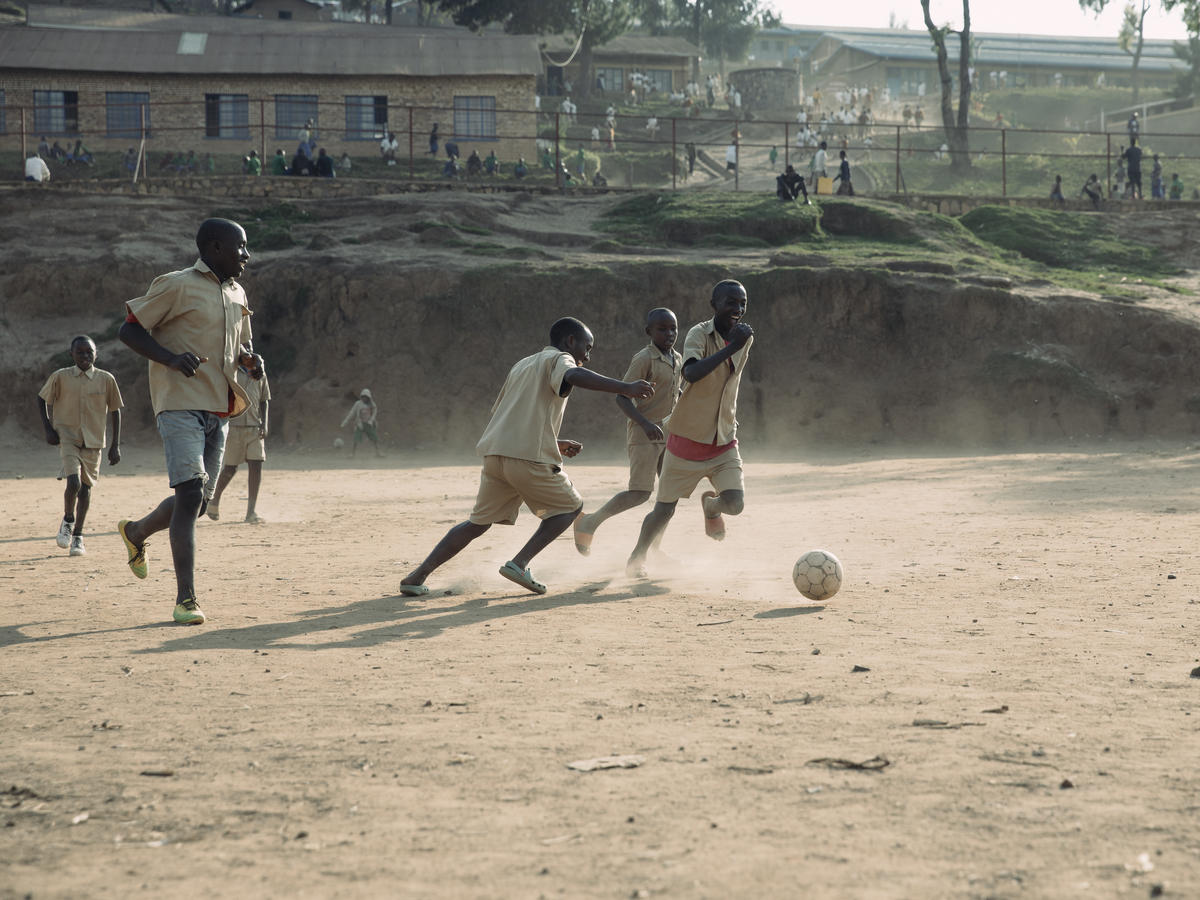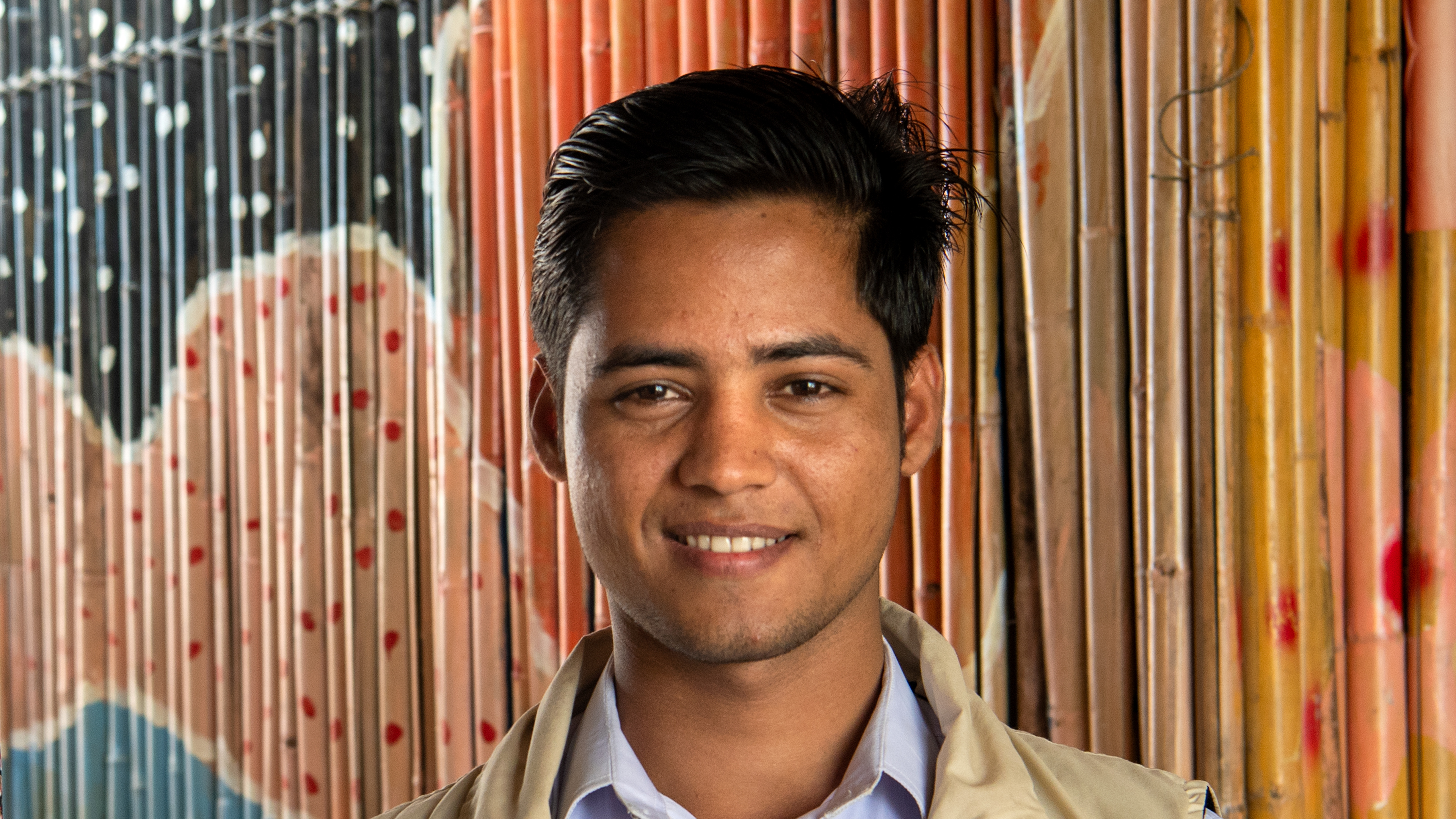Birth certificates help cement rights for young refugees in Papua New Guinea
Birth certificates help cement rights for young refugees in Papua New Guinea

PORT MORESBY, Papua New Guinea, December 2 (UNHCR) - Doris Korodi, a 14-year-old refugee, is now the proud owner of something quite rare in this South Pacific nation - a birth certificate.
That vital piece of paper - taken for granted by parents and children in many other parts of the world - is the culmination of a complex registration exercise made possible through the combined efforts of UNHCR, UNICEF, the Catholic Diocese of Daru-Kiunga and the government of Papua New Guinea (PNG). Doris is one of more than 1,700 refugee children who have now received their birth certificates in a country where only three percent of the general population have their births registered.
"It is a good thing that the children are receiving birth certificates from PNG government," says Doris's grandfather and guardian, Matias Korodi. "This will help them with their future life in this country. They can continue their studies here."
Matias Korodi fled the Papua Province of Indonesia - on the western side of the island - with Doris's parents in 1984. Doris was born in exile and lived in Dome, a refugee settlement on the PNG side of the border until 1997, when she came to the mining town of Kiunga, Western Province, to continue her education.
Now in Year 8 at the Kiunga School, Doris lives in a dormitory built by UNHCR for refugee high school students. Her grandfather is also caring for nine of his other grandchildren from the border settlements of PNG who are attending school in Kiunga.
Unlike Doris, most of the 1,736 refugee children to receive their new documents live in very remote areas, in 17 settlements along the border with Indonesia in the North Fly Region of the Western Province. To find them, gather their data and finally deliver new certificates to the young refugees, staff from the Catholic Diocese of Daru-Kiunga (trained by government officials) sometimes had to walk for a full day, take a long dinghy ride, or scramble up steep escarpments.
"It really was a logistical challenge to reach the 17 settlements," said Sister Maureen Sexton of the Kiunga Diocese. "Most are in remote areas.... It took about seven months to complete the exercise."
"We worked through the leaders of the community which helped people understand what the registration was about and reassure those who were concerned," she added. "We also worked with the local communities in the border area which has helped to improve relationships between the local communities and the refugees. Both sides now recognise the important of having birth certificates."
Johann Siffointe, the UN refugee agency's representative in Papua New Guinea, said registration of births is the first legal acknowledgement of a child's existence and a crucial first step in attaining rights - from enrolling in school to later opening a bank account, finding a job or obtaining credit. A birth certificate to prove a child's correct age is also an important tool for preventing child labour, under-age military service or conscription, and forced marriage for girls.
Sister Maureen also stressed the importance of the birth certificates as a form of identification. "We all have a right to claim where we were born," she said. "As PNG requires more forms of identification, for example, to open bank accounts, enrol in higher education institutions and to get a job, these children will now be able to comply."
Siffointe said the whole exercise "demonstrates further the PNG Government's commitment to meeting its international obligations and in particular the Refugee Convention and the Convention on the Rights of the Child."
The right to a name and identity is one of a child's most fundamental rights, and "children who have been displaced because of conflict ... are among the most vulnerable of all children," said Bruce Grant, child protection officer for UNICEF in Papua New Guinea.
"This exercise also gives rights to refugee children as long as they are born in PNG," said Papua New Guinea's Deputy Civil Registrar, Augustus Wagambio.
The exercise is part of a broader campaign by UNICEF and the Civil Registry Office of the Department of Community Development launched in March 2004 to have 100% of all births in PNG registered by December 2007.
The campaign also aims to put in place an accessible, decentralized and sustainable birth registration system and promote greater awareness of the importance of registration amongst parents and communities.
Another 1,217 refugee children born in PNG and living in the government-sanctioned refugee settlement of East Awin, Western Province, received birth certificates in April, 2004, under a registration campaign launched by the PNG authorities and UNHCR.
By Ariane Rummery in Port Moresby, Papua New Guinea



